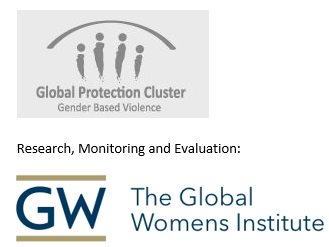- Specialised services are necessary for the small percentage of the population who, despite the other support interventions, experience mental and emotional pain which is intolerable, and/or develop mental disorders and may have difficulty managing basic day-to-day functioning. These interventions should include psychological or psychiatric support services for individuals whose needs surpass the capacities and services of existing primary health programs. It must be noted that while specialized services are only needed for a small percentage of the population, in most large conflict or post-conflict humanitarian settings this group can total to thousands of individuals (adapted from IASC, 2007).
- Target Population: Small percentage of the population who experience mental and emotional pain that is intolerable and/or develop mental disorders and may have difficulty managing basic day-to-day functioning.
- Suggested Actions and Activities:
- Conduct psychological or psychiatric evaluations
- Provide treatment and care by trained professionals
- Conduct training in specialized care for primary health care providers (adapted from UNFPA, 2012).
Example: Heartland Alliance for Human Needs & Human Rights “Sikia” program- Democratic Republic of Congo. Heartland Alliance for Human Needs & Human Rights is currently implementing a programme called Sikia ("to listen" in Kiswahili), to strengthen the capacity of community level mental health workers (CMHW) providing psychosocial support to survivors of VAWG in Uvira Territory, South Kivu Province, DRC. This innovative training project was developed in cooperation with the United Nations High Commission for Refugees and DRC host-country nationals to improve community-level mental health services for survivors in post-conflict South Kivu Province. A two-year training plan has been designed and will be implemented in seven distinct week-long training seminars covering such topics as clinical care and referrals, effects of trauma, community engagement, and stress reduction. In addition the project will be:
- Working in partnership with a number of international mental health consultants, who will serve as expert trainers and will provide CMHWs with clinical oversight and referral options, basing a Mental Health Program Manager in Uvira town
- Building the operational capacity of local associations to provide front-line care to SGBV victims by providing local partners' associations with funds for staff salaries, rent and vehicles; launching two new maisons d'écoute in the Haute Plateau Health Zone of Uvira Territory
- Training and supporting grassroots-level mental health workers, creating a cadre of local providers capable of providing a range of individual and community-level services around SGBV response.
For more information see the Heartland Alliance International website.
